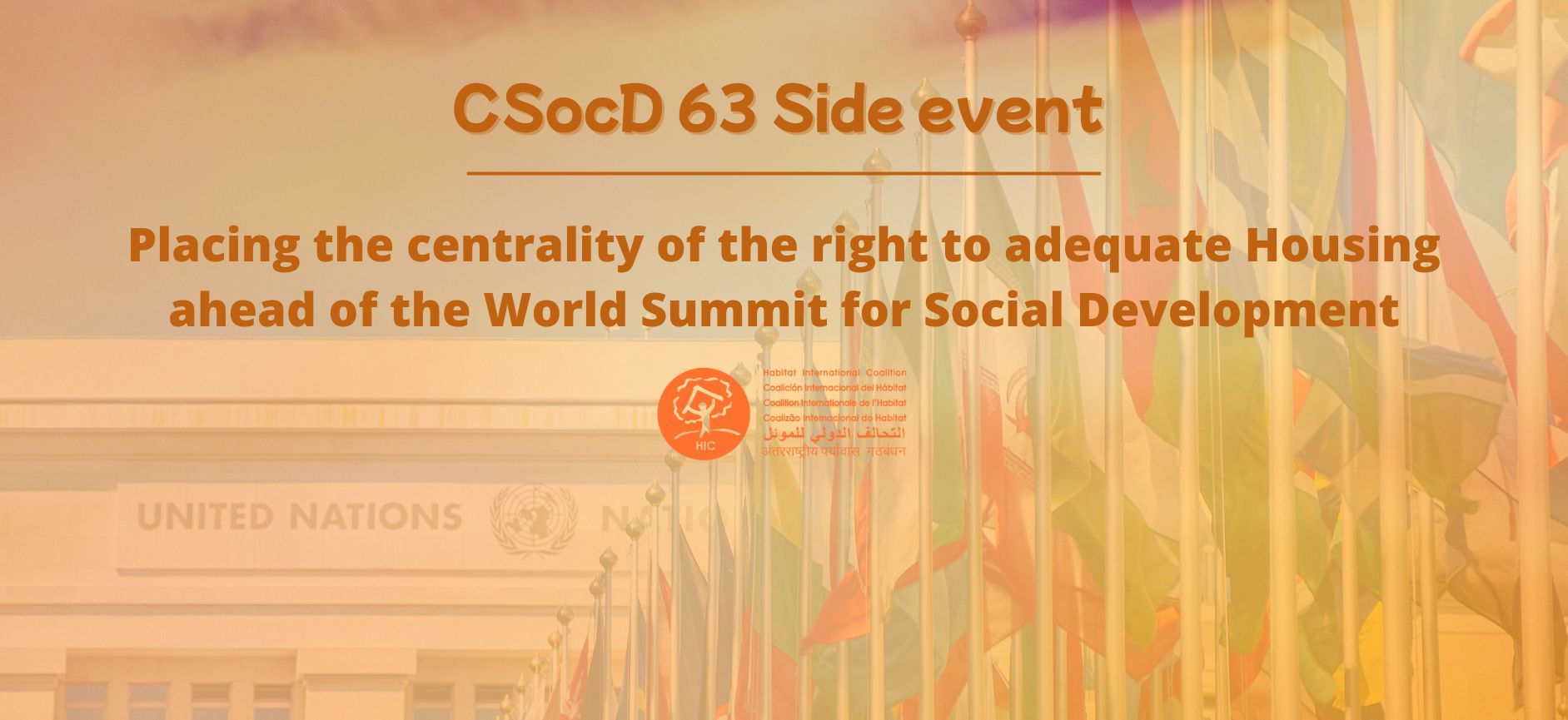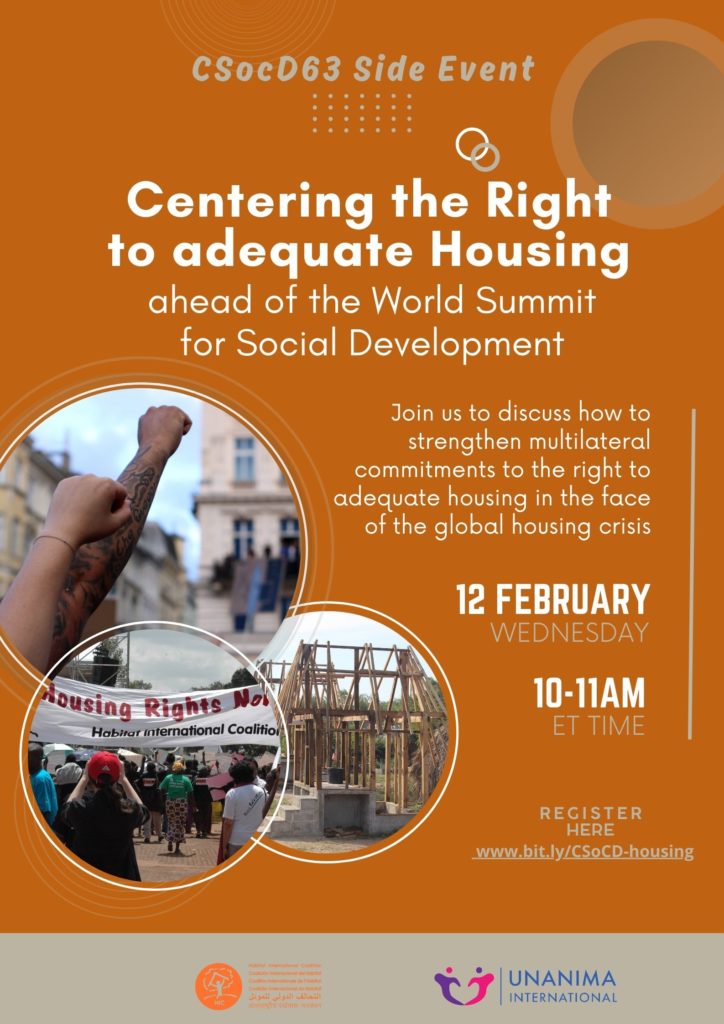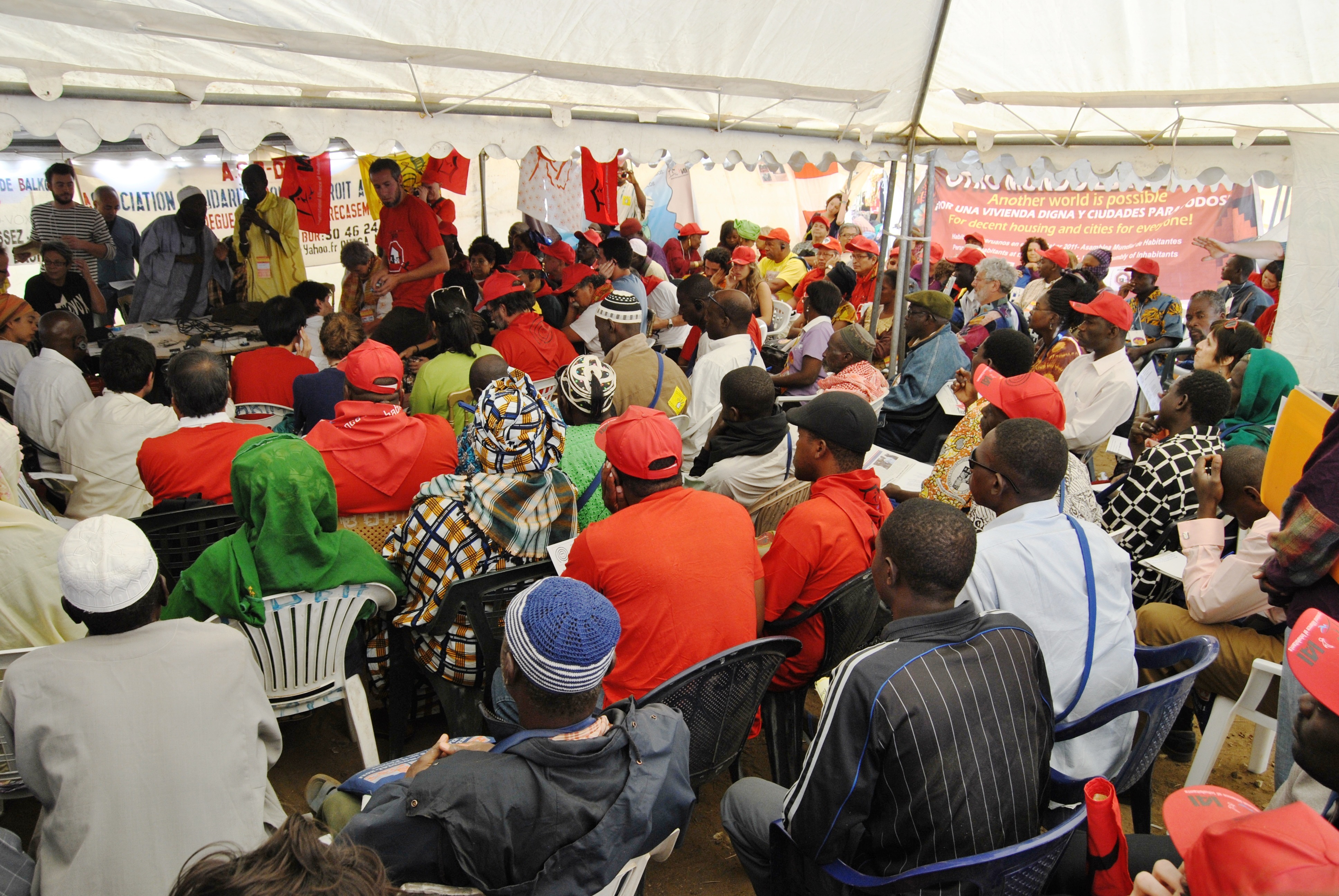Register here: www.bit.ly/CSoCD-housing
Background
We are today witnessing a global housing crisis, marked by a scenario of an overall worsening of affordability conditions, increasing financialization and speculation of housing, evictions and direct and indirect displacement. As such, the number of people without proper housing or living in inadequate conditions is currently projected at 1.6 billion with the possibility of mounting to 3 billion by 2030. During the COVID-19 pandemic, and particularly during the beginning of the emergency response, the urgency of protecting the right to adequate housing for all, contributed to raising awareness about the importance of such a right, opening-up space for policies that guarantee it, including temporary moratoria on evictions. However, as the years passed, not only the situation regarding housing rights seems to be worsening, but also its centrality in public debate seems to have shifted as well.
This can be seen both in national scenarios and in multilateral discussions. Housing played a prominent role within the idea of a “renewed social contract” alluded in the UN Secretary General’s “Our Common Agenda”, but has been absent in the initial drafts of the final declarations both of the 2023 SDG Summit and 2024 Summit of the Future and, once included, largely reflect a narrow vision on the thematic, not grounded on the full understanding of adequate housing as a Human Right. Moreover, both multilateral discussion as well as policies at the national level would benefit from a broader repertoire regarding housing policy, that goes beyond an over-reliance traditional market-led approaches (with demonstrated consequences in terms of social exclusion) and include both community-led approaches as well as policy instruments that protect the right to adequate housing with formulas that go beyond the construction of new housing units. To drive progress on sustainable and social development, the global community must commit to inclusive policies and programs which address the intersections between housing insecurity, structural inequalities, poverty, homelessness, and lack of social protections.
Ahead of the upcoming World Summit for Social Development, the opportunity is ripe for building on such a nuanced discussion, engaging with a variety of actors around different approaches for the defense, promotion and fulfilment of the Right to adequate housing. For such, this event will focus on enhancing the importance of having a strong commitment to the right to adequate housing through multilateral instances, with a particular focus on the upcoming summit, highlighting concrete proposals of policies and approaches that can play a substantive role in facing the current housing crisis.
Objectives
- Placing the Right to Adequate Housing as a central topic to be addressed during the World Summit for Social Development;
- Taking-stock of how housing has been and is currently present in multilateral agendas, making the case for a stronger, diverse and more nuanced vision of approaches towards the realization of the Right to Adequate Housing;
- Promote an exchange between different actors on diverse approaches and examples of policies and initiatives for facing the current housing crisis, focusing particularly on measures that are less represented and that depart on an over-reliance on construction of new housing units by market-based actors


